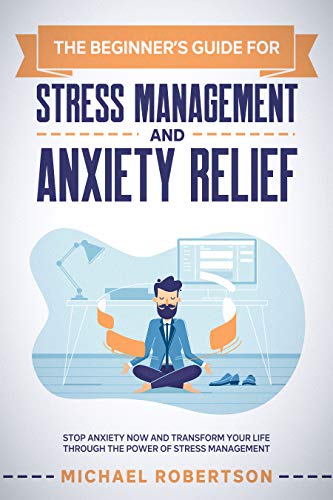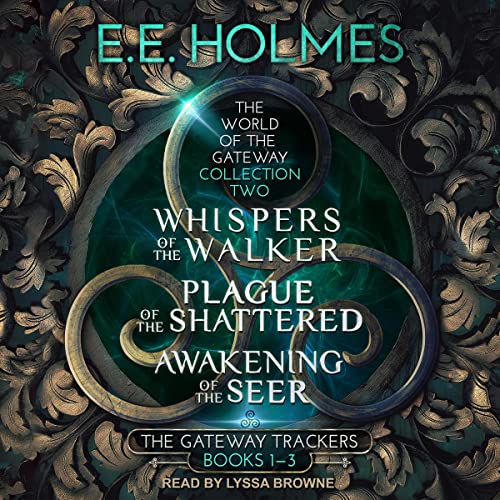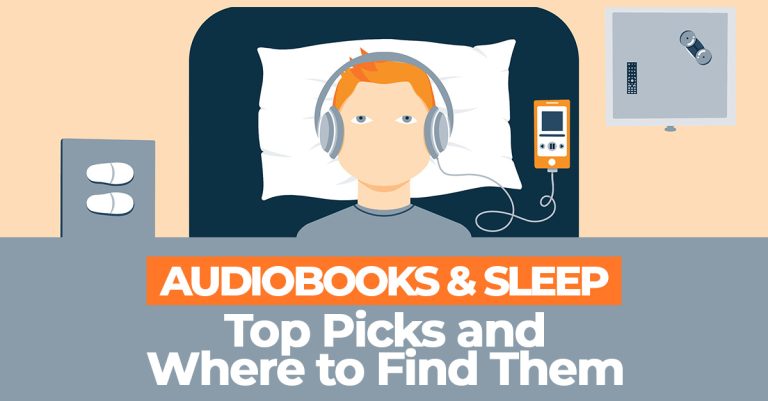Are Audiobooks Better Than TV?
Move over TV, because audiobooks are here to steal the spotlight! In the battle between these two forms of entertainment, have you ever wondered which one comes out on top? Well, get ready to dive into a world of words and sound as we explore the question: “Are audiobooks better than TV?”
When it comes to engaging our senses and igniting our imaginations, audiobooks have a unique way of captivating us. Instead of passively watching a screen, audiobooks invite us to actively listen and visualize the story unfolding in our minds. With the power of narrators who can bring characters to life and convey emotions through their voice, audiobooks create an immersive experience that can transport us to different worlds. Whether we’re on a road trip, cooking in the kitchen, or simply relaxing at home, audiobooks offer a convenient and versatile way to indulge in captivating stories. So, why not give your eyes a rest and let your ears take the lead with the enchanting world of audiobooks?

Are Audiobooks Better Than TV?
In today’s digital age, we have countless options for entertainment at our fingertips. From streaming services to audiobooks, there are endless ways to indulge in our favorite stories. But when it comes to the age-old debate of audiobooks versus television, which one comes out on top? In this article, we will explore the benefits of audiobooks and TV, comparing their merits and helping you decide which one is better suited to your preferences and lifestyle.
The Benefits of Audiobooks
Audiobooks have gained immense popularity in recent years, and for good reason. They offer a unique and immersive storytelling experience that allows listeners to engage with a book in a whole new way. Here are some of the key advantages of audiobooks:
1. Convenience and Accessibility
One of the major advantages of audiobooks is their convenience and accessibility. Unlike television, which requires a screen and your undivided attention, audiobooks can be enjoyed anytime, anywhere. Whether you’re commuting, doing chores, or simply relaxing, you can easily plug in your headphones and dive into a captivating story.
Audiobooks also cater to individuals with visual impairments or learning disabilities, providing them with an inclusive and accessible medium to enjoy literature.
2. Multitasking-Friendly
Unlike TV shows or movies, audiobooks allow you to multitask while enjoying a story. You can listen to an audiobook while cooking, exercising, or even during your daily commute. This makes them a perfect companion for those who lead busy lives and struggle to find dedicated time for reading.
By incorporating audiobooks into your routine, you can make the most of your time and indulge in literature without sacrificing other important activities.
3. Imagination and Engagement
When you listen to an audiobook, your imagination takes center stage. Without the visual cues provided by television, your mind is free to create vivid imagery and immerse yourself in the story. This not only enhances your engagement with the narrative but also stimulates your imagination, making the storytelling experience more personal and memorable.
Additionally, many audiobooks are narrated by talented actors or authors themselves, adding another layer of depth and emotion to the storytelling process.
The Benefits of TV
While audiobooks have their unique advantages, television also offers a range of benefits that cannot be ignored. Here are some of the reasons why TV remains a popular form of entertainment:
1. Visual Stimulation
One of the biggest draws of television is its visual element. TV shows and movies bring stories to life through captivating visuals, stunning cinematography, and intricate set designs. This visual stimulation can greatly enhance the storytelling experience, immersing viewers in a visually rich and dynamic world.
Whether it’s the breathtaking landscapes of a nature documentary or the dazzling special effects of a sci-fi series, television provides a feast for the eyes that audiobooks simply cannot replicate.
2. Shared Experience
Television has a unique ability to bring people together. Whether it’s gathering with friends to watch a favorite show or discussing the latest episodes with coworkers, television fosters a shared experience and creates a sense of community.
From watercooler conversations to online forums, TV shows have the power to spark conversations, debates, and connections among viewers. This shared experience can be a powerful way to bond with others and create lasting memories.
3. Visual Storytelling
Television is a medium that excels at visual storytelling. With a combination of dialogue, acting, and visual cues, TV shows can convey complex narratives and character arcs in a compelling and engaging way.
From intricate plot twists to emotional character development, television has the ability to captivate viewers with its storytelling prowess. The power of visual storytelling can evoke powerful emotions and create a lasting impact on the audience.
Which One Is Better?
Ultimately, the question of whether audiobooks are better than TV or vice versa is subjective and depends on individual preferences. Both mediums offer unique benefits, and the choice between them boils down to personal taste and lifestyle.
If you’re a busy individual looking for a way to incorporate literature into your daily routine, audiobooks can be a fantastic option. They allow you to multitask and engage with stories on the go.
On the other hand, if you crave visual stimulation, shared experiences, and the power of visual storytelling, TV may be the ideal choice for you.
Ultimately, the key is to embrace the variety of options available to us and find the perfect balance between audiobooks and TV based on our individual preferences and circumstances.
Additional Benefits of Audiobooks and TV
Benefits of Audiobooks:
- Enhanced convenience and accessibility
- Improved multitasking capabilities
- Stimulated imagination and engagement
- Inclusive medium for individuals with visual impairments or learning disabilities
Benefits of TV:
- Visual stimulation and captivating cinematography
- Shared experience and sense of community
- Powerful visual storytelling
Conclusion
In conclusion, the debate between audiobooks and TV is a matter of personal preference. Both mediums offer unique advantages and cater to different needs and lifestyles. Whether you choose to dive into the world of audiobooks or immerse yourself in the visual storytelling of television, the key is to find what resonates with you and brings you joy and entertainment.
Key Takeaways: Are Audiobooks Better Than TV?
- Audiobooks allow you to use your imagination and visualize the story in your own unique way.
- Listening to audiobooks helps improve your listening skills and concentration.
- Audiobooks are portable and can be enjoyed anywhere, anytime.
- TV can be visually stimulating, but it can also be a distraction and may not engage your imagination as much.
- Audiobooks provide a great way to relax, especially before bedtime.
Frequently Asked Questions
1. Are audiobooks a better form of entertainment than TV?
Audiobooks and TV offer different forms of entertainment, each with its own unique advantages. While TV provides visual stimulation and the ability to see the story unfold, audiobooks offer a more immersive and engaging listening experience. Here’s why:
Audiobooks allow you to multitask: One of the biggest advantages of audiobooks over TV is that you can listen to them while doing other tasks. Whether you’re commuting, exercising, or doing household chores, you can easily enjoy an audiobook without having to dedicate your full attention to it.
Audiobooks stimulate imagination: Unlike TV, which presents you with visual representations of characters and settings, audiobooks rely on your imagination to bring the story to life. This encourages creative thinking and allows you to visualize the narrative in your own unique way.
2. Can audiobooks be more educational than TV?
Audiobooks have the potential to be highly educational, often offering a depth of knowledge and information that TV shows may not provide. Here’s why audiobooks can be a great educational tool:
Wide range of subjects: Audiobooks cover a diverse range of topics, from history and science to self-improvement and biographies. This allows you to explore different subjects and expand your knowledge in a convenient and engaging way.
Improved listening skills: Listening to audiobooks helps develop listening skills, concentration, and focus. By actively engaging with the material, you can enhance your comprehension and retention of information.
3. Are audiobooks more convenient than TV?
When it comes to convenience, audiobooks have a clear advantage over TV. Here’s why:
Portability: Audiobooks can be easily accessed and enjoyed on various devices such as smartphones, tablets, or dedicated audiobook players. This allows you to take your favorite books with you wherever you go, making them a perfect companion for long commutes or travels.
No screen time: Unlike TV, which requires you to sit in front of a screen, audiobooks allow you to enjoy your favorite stories without straining your eyes or being tied to a specific location. You can listen to audiobooks while doing other activities, making them a flexible and convenient form of entertainment.
4. How do audiobooks stimulate imagination compared to TV?
Audiobooks, unlike TV, engage your imagination by allowing you to create mental images based solely on the narrator’s voice and the story being told. Here’s how audiobooks stimulate imagination:
Descriptive language: Audiobooks often use vivid and descriptive language to bring characters, settings, and emotions to life. This prompts your imagination to fill in the gaps and visualize the details, creating a more personalized and immersive experience.
Engaging narration: Skilled audiobook narrators use their voices to convey different characters, accents, and emotions. This adds depth and richness to the story, enhancing your imaginative experience and making it feel like a personal performance.
5. Can audiobooks offer a more immersive experience than TV?
Audiobooks have the ability to provide a deeply immersive experience, sometimes even surpassing what TV can offer. Here’s why:
Emotional connection: The power of a well-narrated audiobook lies in the ability to create a strong emotional connection with the listener. Through the use of voice modulation, tone, and pacing, audiobooks can evoke a wide range of emotions, drawing you deeper into the story.
Engaging storytelling: Audiobooks often feature talented narrators who bring characters to life and captivate listeners with their storytelling skills. This can create a more intimate and engaging experience than watching a TV show, as it feels like someone is personally telling you the story.
My 4-Step Framework for Learning With Audiobooks
Final Thought: Are Audiobooks Better Than TV?
After exploring the pros and cons of audiobooks and TV, it’s clear that both mediums offer unique experiences and have their own merits. While audiobooks provide a convenient way to consume content on the go and stimulate imagination through the power of storytelling, TV offers a visually immersive experience with captivating visuals and dynamic narratives. So, it’s not a question of which one is better than the other, but rather which one suits your preferences and lifestyle.
For those who enjoy multitasking or have a busy schedule, audiobooks can be a fantastic companion. You can listen to captivating stories while driving, exercising, or doing household chores. They provide an opportunity to engage your mind and explore different genres from mystery and fantasy to self-help and biographies. Plus, with the rise of talented narrators, audiobooks have become more entertaining and engaging than ever before.
On the other hand, TV offers a visually rich experience that can transport you to different worlds. From epic dramas to thrilling crime series, TV shows have the power to captivate and entertain. With stunning cinematography, talented actors, and intricate plotlines, TV can be a great way to unwind and escape reality. Additionally, the rise of streaming platforms has made it easier than ever to access a vast library of shows and movies at your fingertips.
In conclusion, both audiobooks and TV have their own unique advantages and can provide hours of entertainment. Whether you prefer to immerse yourself in a captivating story through the power of narration or indulge in visually stunning shows, the choice ultimately comes down to personal preference. So, why not embrace the best of both worlds and enjoy the wonders of audiobooks and TV?






